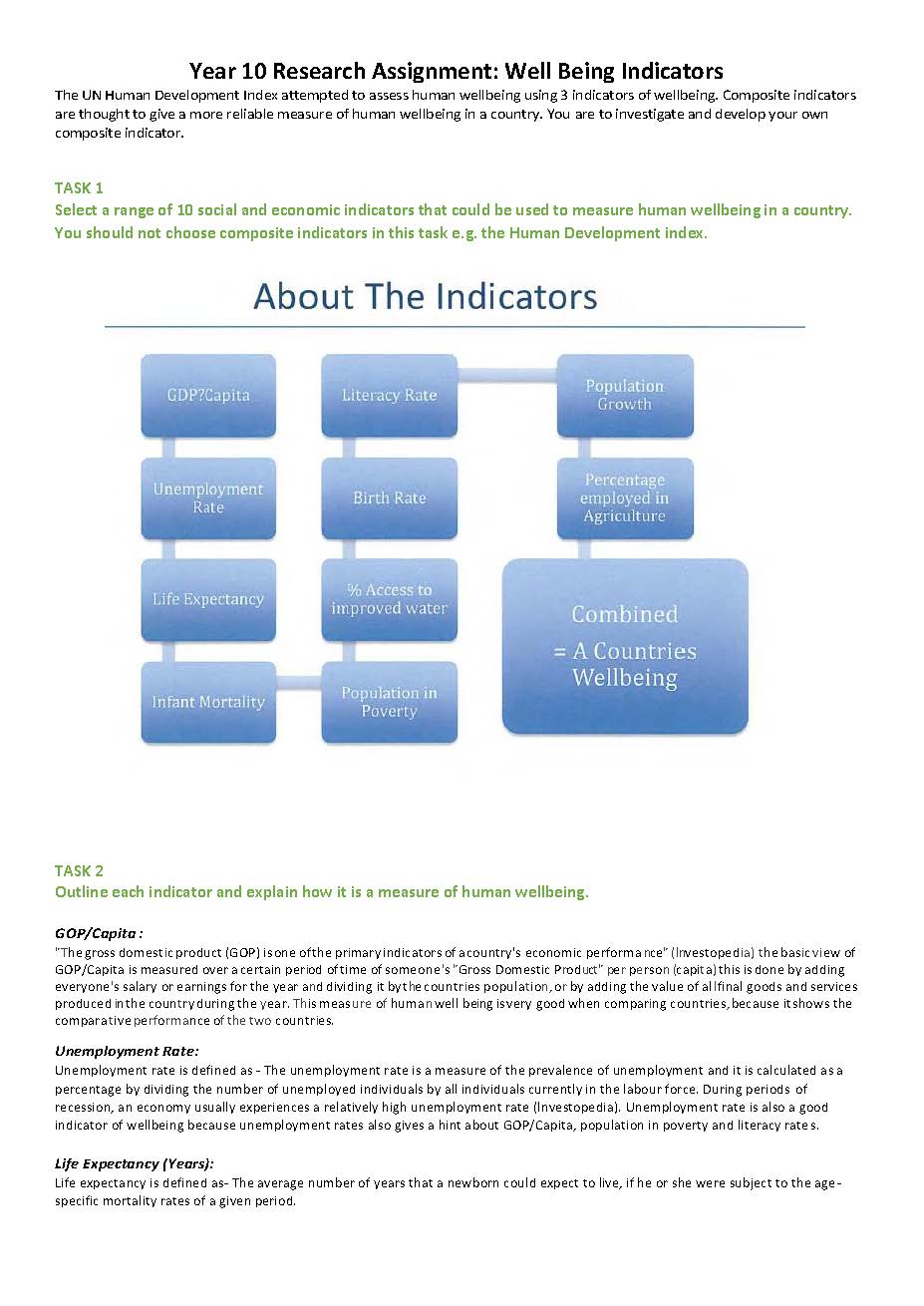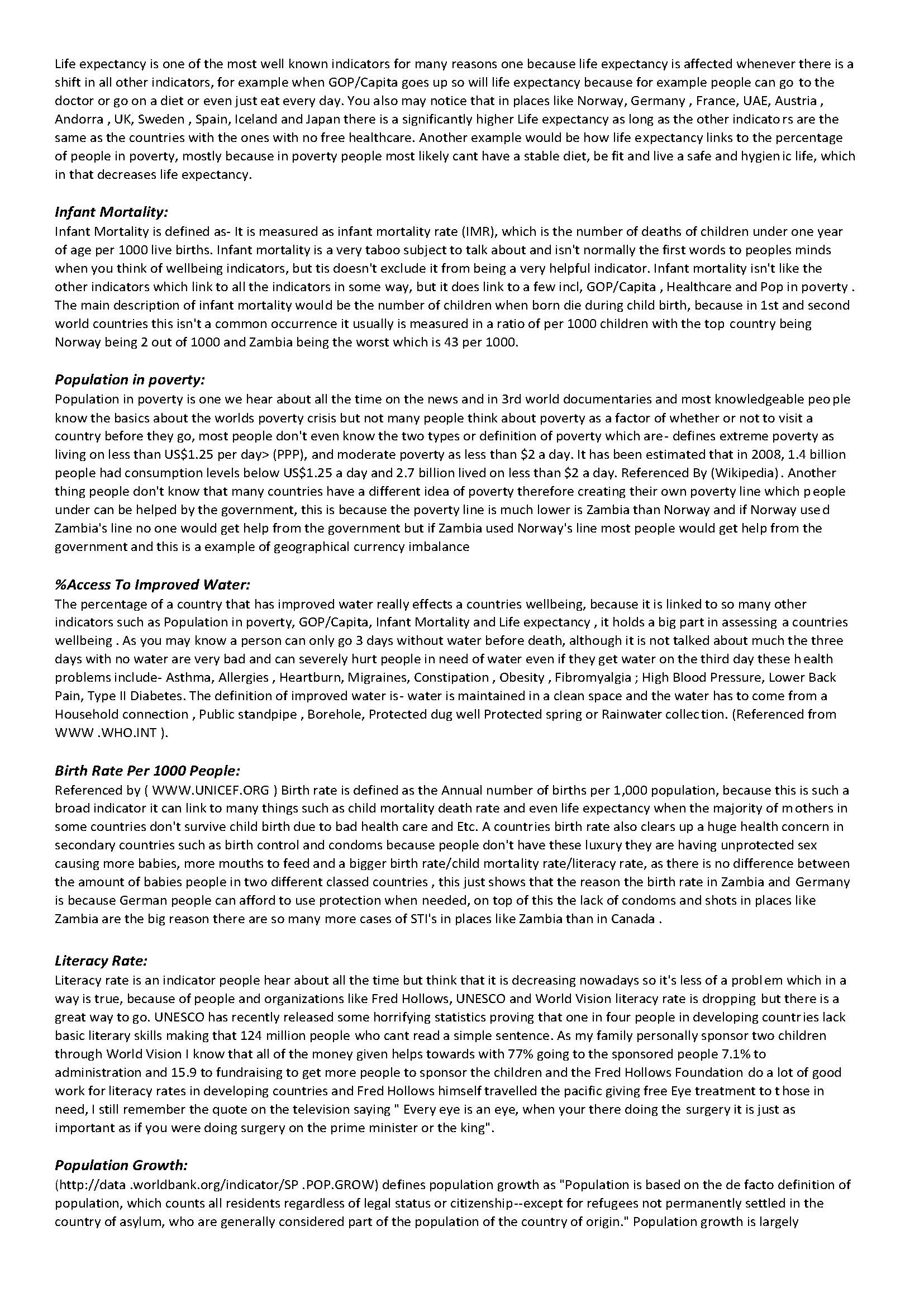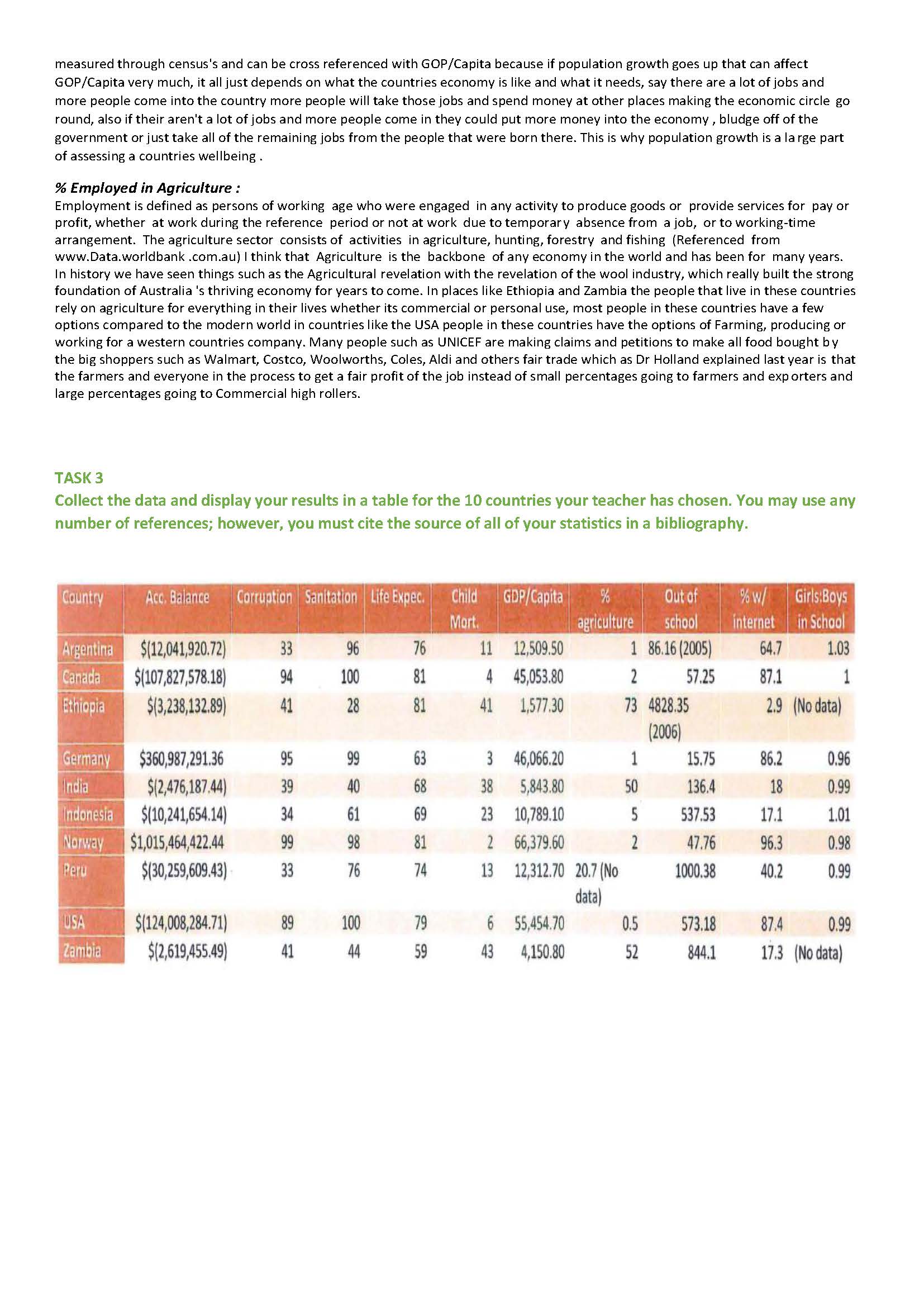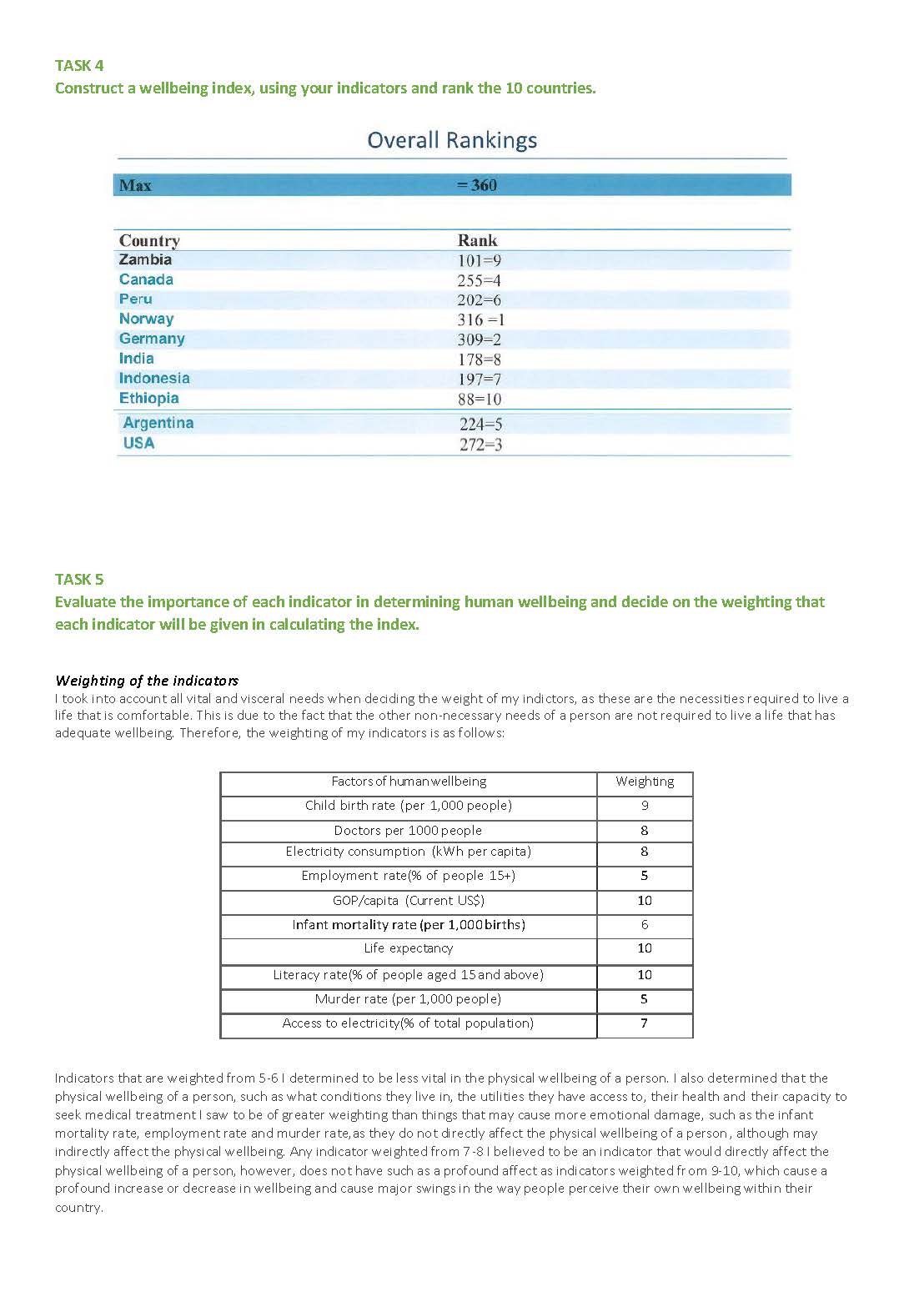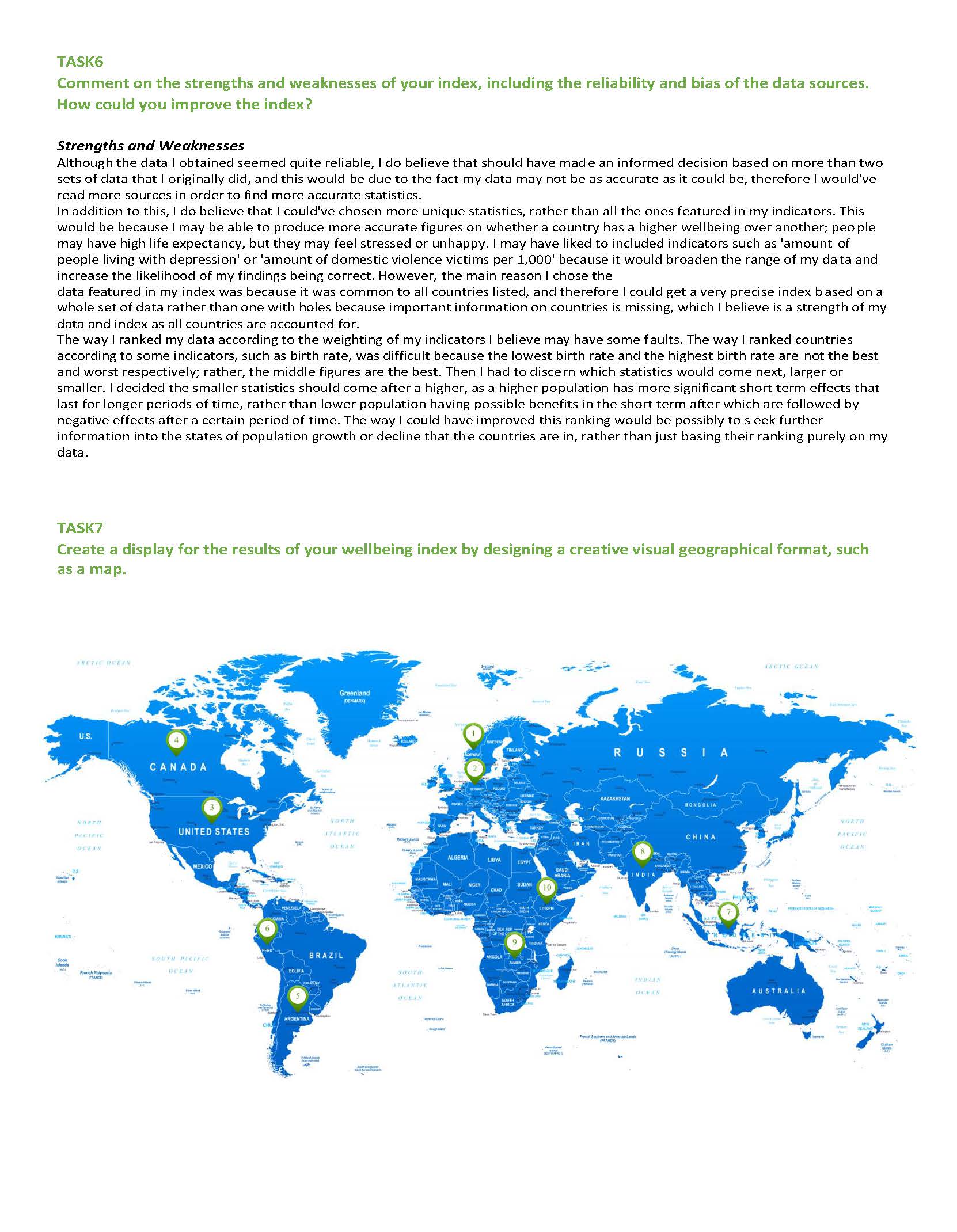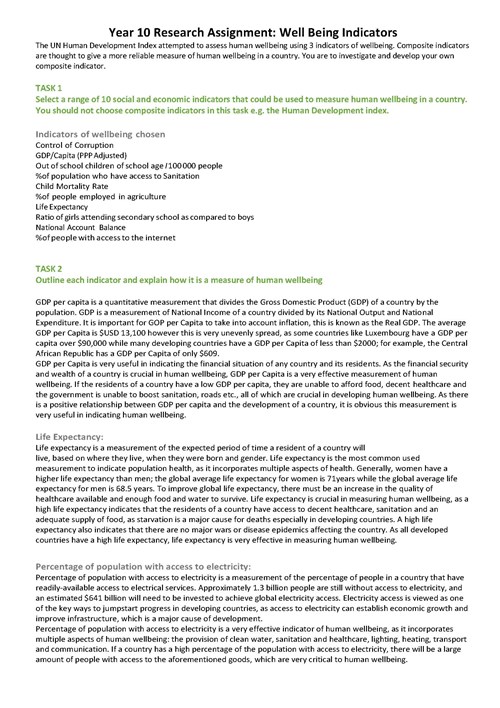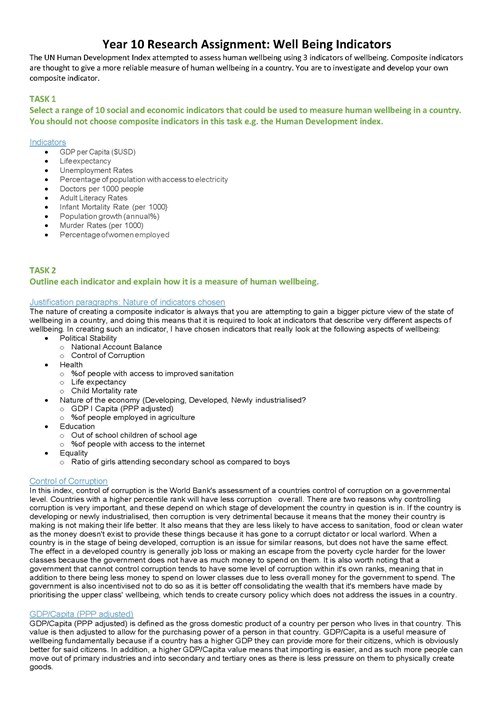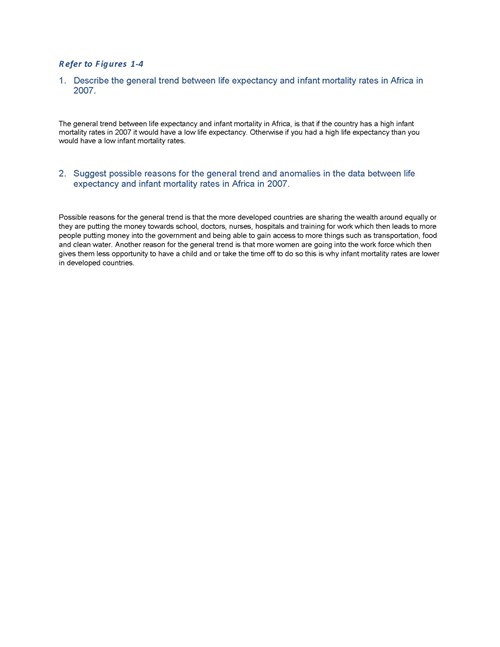Research assignment: Wellbeing indicators
Summary of task
Over a period of four weeks before completing the task, students examined the concept of human wellbeing and factors affecting human wellbeing. Students discussed how effective quantitative and qualitative indicators are at assessing levels of wellbeing. They were then introduced to the idea that composite indicators (such as the UN Human Development Index) are thought to give a more reliable measure of human wellbeing in a country than other indexes. Given this background, students progressed through a staged inquiry over eight lessons to develop their own justified composite wellbeing index.
Specifically, students were asked to independently select and explain 10 social and economic indicators that they considered to be effective in measuring human wellbeing in a country and to collect the relevant data using internet research. Using the statistical data, students constructed a composite wellbeing index with teacher assistance in the development of their methodology where necessary. Students were required to evaluate (from their perspective) the importance of each indicator in determining human wellbeing and decide on the weighting that each indicator would be given to calculate the index. This index was then used to rank the 10 countries according to the value of the composite wellbeing index. Finally, students evaluated their index for strengths and weaknesses, including the reliability and bias of the data sources, and proposed how their index could be improved. They presented the results in a geographical format to creatively and imaginatively display their wellbeing index.
